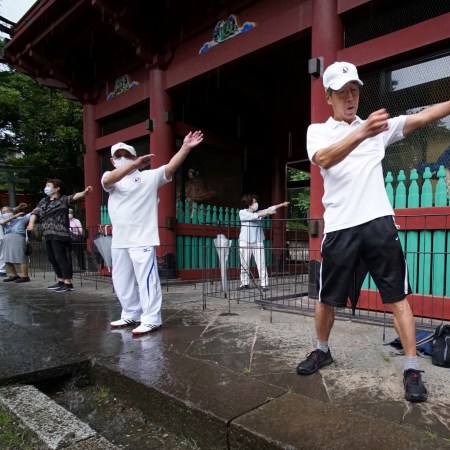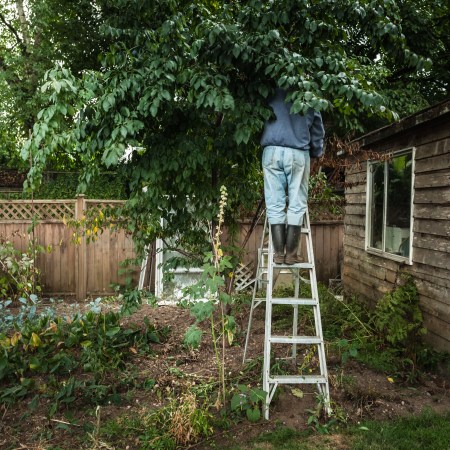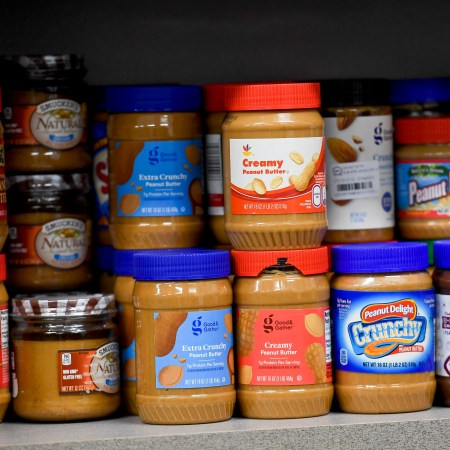Dr. James Hamblin is a self-professed “soap dodger,” which sounds like the sort of movement you’d learn about from a B-list movie star in an annoying GQ interview, but the 39-year-old physician knows his stuff. He’s a public health lecturer at Yale, a longtime contributor to The Atlantic and the author of two books on the intersection of health and hygiene.
In his book Clean: The New Science of Skin and the Beauty of Doing Less, Hamblin dispels a number of misconceptions surrounding cleanliness, and details his personal experimentation in cutting soap, shampoo and other cleaning products out of his life. Around the time of the book’s release in 2020, Hamblin said he hadn’t taken a single, traditional shower in five years. Water, washcloths and a bit of deodorant is all he used on his body (though, as a practicing physician, he does still wash his hands with soap).
Why dodge soap? Hamblin’s general thesis is that we’re using way too much, and the only reason cutting back seems off the table is we’ve all been brainwashed by decades of extremely effective marketing.
Here’s the science: Our skin is covered in trillions of microbiomes. They’re microscopic mites that actively colonize our skin and guts. We’re all familiar with the line “your skin is your largest organ,” which is typically weaponized by skincare brands as a reason to take better care of it (and buy more products). And you should take care of it — it’s a dynamic, vulnerable ecosystem — but far too often, according to Hamblin, we’re over-interfering. Microbiomes know how to exfoliate the skin, prevent breakouts and stiff-arm infections on their own.
As Big Think points out, “the more we wash [these microbiomes] away, the more susceptible we become to foreign invaders.” Or acne. Or eczema. Or even allergies. Too many of us are locked in a self-defeating cycle: We rub away natural grime, assuming it’s the right thing to do for our skin, but this dries out the skin even more, leading to more skin issues, at which point we wash even more (with a fancier, more expensive exfoliant), or even turn to oral and topical antibiotics, which cause their own skin issues.
You can’t win in this situation. But the manufacturers of cleaning products and antibiotics certainly do. Hamblin advocates for a “slow fade” approach. He writes in his book: “As I gradually used less and less, I started to need less and less. My skin slowly became less oily, and I got fewer patches of eczema. I didn’t smell like pine trees or lavender, but I also didn’t smell like the oniony body odor that I used to get when my armpits, used to being plastered with deodorant, suddenly went a day without it.”
Most of us don’t want to smell like we spent the weekend at a music festival, especially with returns to the workplace looming large this year, but wean yourself off soap, shampoo and the like, and you might be surprised. (For the record, we gave up shampoo nearly two years ago. It’s a game-changer.) Not smelling like “citrus lavender breeze,” or whatever your go-to soap’s scent is, doesn’t mean you smell bad. It just means you don’t smell of perfumed triglyceride.
At the end of the day, soap is simple and inexpensive to produce. We’re all paying for scents and labels. These days, conscious shoppers are looking for body wash that has next to nothing in it — all-natural concoctions made from ingredients you could likely find at a grocery store. That doesn’t mean you should make your own soap, but it should give you some cause to lightly reconsider the tradition. If we’re starting to prioritize products that barely disturb the skin’s natural environment…perhaps we shouldn’t disturb it at all?
Thanks for reading InsideHook. Sign up for our daily newsletter and be in the know.


















